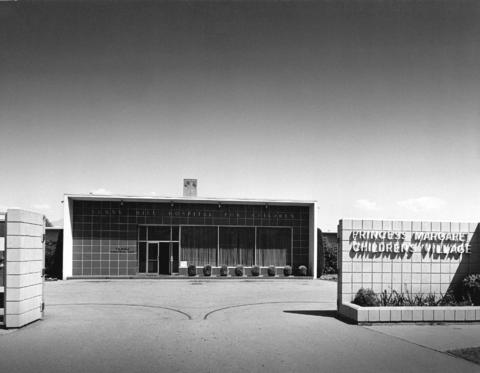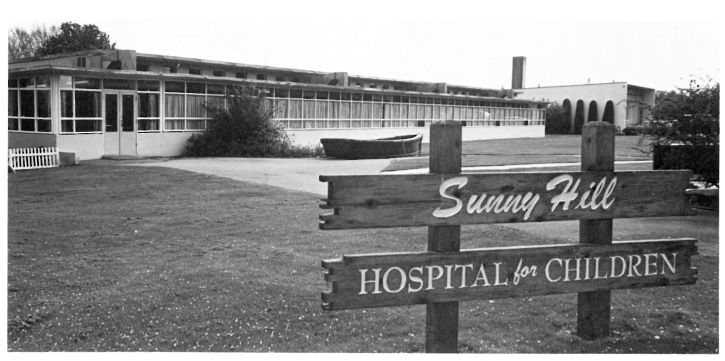The site will become home to a new centre for children and youth living with health complexity. It has a notable history that we're still learning about.
The lands south of Burrard Inlet, where the Slocan site is located, were once a rich temperate rainforest criss-crossed by streams flowing to the inlet. The lands were used by the xʷməθkʷəy̓əm (Musqueam), Sḵwx̱wú7mesh Úxwumixw (Squamish Nation), and səl̓ílwətaʔ (Tsleil-Waututh Nation) for hunting and gathering food, medicine, and resources such as wood, bark, and roots from the native Western red cedar and Douglas fir trees. The three Host Nations have cared for these lands for all time.
European settlers began clearing these lands for settlement beginning in 1863, when Hastings Townsite was established as a government reserve.
The arrival of European settlers also introduced smallpox to B.C., with tragic consequences for Indigenous communities. One of the worst smallpox epidemics to sweep through B.C. was in 1862, killing one-third of the First Nations population in the province. To learn more about this early history of smallpox,
visit the First Nations Health Authority website.
To deal with the smallpox epidemics in the city of Vancouver, a preliminary isolation hospital with 12 beds was built on Keefer Street. But by 1909, with the arrival of more settlers, there was a need to expand.
Many residents objected to a new isolation hospital within city limits. So in 1911, a location was purchased for $45,000 at Slocan Street and 21 Avenue in Hastings Townsite. The Townsite had just voted to join the City of Vancouver in 1910, but was still seen as far enough away from the heart of the city. At the time of the sale, the site had already been completely cleared of native trees.
(Image above: A city clerk marked as "accepted" the proposal of 93 lots in Hastings Townsite for the isolation hospital. Courtesy of City of Vancouver Archives).
The isolation hospital took just over one year to build. It had an administrative building and two wards: a smaller ward for women and a larger ward for men. The front entrance included a mortuary.
(Image above: Architectural drawings of the entrance house and mortuary of the isolation hospital, 1910. Courtesy of City of Vancouver Archives.)
(Image left: The isolation hospital can be seen on the 1912 Goads Fire Insurance map as the pink buildings between Kaslo and Slocan streets. Courtesy of City of Vancouver Archives.)
During the 1920s, a series of vaccination campaigns helped curb successive waves of the disease. For example, a 1920 smallpox outbreak led to 80 per cent of school-aged children being vaccinated in just six months.
By the early 1930s, the isolation hospital fell out of use due to a decline in smallpox (though the disease was not officially declared as eradicated until 1980 by the World Health Organization; its eradication was a direct result of global vaccination).
The buildings on the Slocan site were repurposed into a tuberculosis (TB) preventorium for children, which opened in 1931.
(Image below: The preventorium in the early 1930s, courtesy of E. Brenda Flynn and Glennis Zilm).
In the 1940s and 1950s, the preventorium treated children from all over the province for TB and polio, the major health issues of this time.

An expansion in 1958 added 70 beds to the facility. On July 23, 1958, Princess Margaret visited the Preventorium to officially open the new unit, and the whole site was briefly renamed the Princess Margaret Children’s Village.
(Image left: The 1958 addition and front entrance off 21 Avenue. Courtesy of City of Vancouver Archives.)

With the success of antibiotics in treating TB, preventoriums were no longer needed. In 1961, the site was renamed the Sunny Hill Hospital for Children. It focused on caring for kids with cerebral palsy, disabilities, and children requiring extensive rehabilitation.
(Image above: The Sunny Hill buildings seen from 21 Avenue, early 1960s. Courtesy of Sunny Hill files.)
The former Sunny Hill building will be demolished to make way for a new centre for children and youth living with health complexity – continuing the century-old legacy of health care on this site.
(Image above: Conceptual interpretation of the proposed centre. Please note that the final design may change. Courtesy of DIALOG.)
The new centre and service will be the first of its kind in Canada in how it coordinates care for these children and their families as their needs change.
Learn more about the proposed services.
For more information about the planned centre for children and youth living with health complexity on the Slocan site,
visit the Slocan pages on the BC Children’s Hospital website. A more detailed history of the Slocan site can be found
here. Or email us at
slocaninfo@phsa.ca.
A special thank you to Kira Baker and her colleagues at the City of Vancouver Archives for their expertise and assistance with this research.
